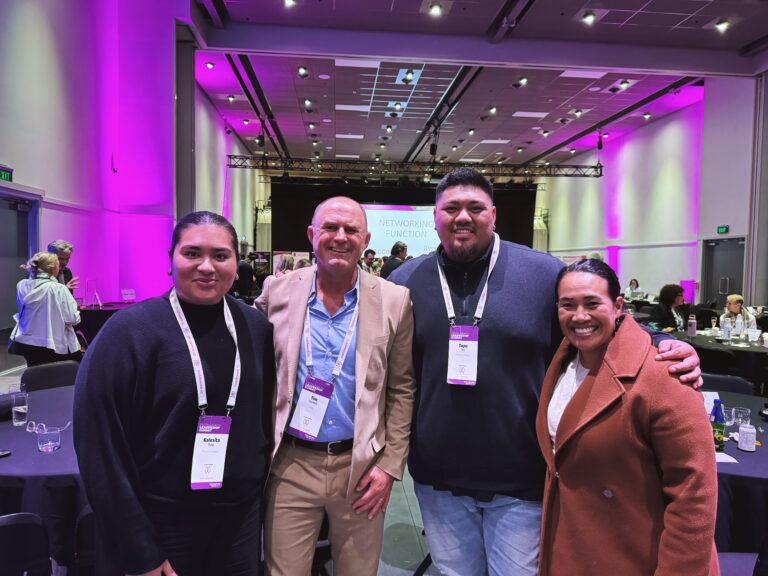


2024 HINZ Digital Health Leadership Summit: “No one gets left behind.” Remembering whose voices are not in the room & Building Māori and Pacific leadership in Digital Health.
Earlier this month Moana Connect representatives Jacqueline Fa’amausili, Tupu Sio and Kalesita Pole attended a two-day Digital Health Leadership Summit in Wellington hosted by Health Informatics New Zealand, HINZ. With this year’s theme being “Leading Change”, the summit brought together digital health leaders across Aotearoa to collaborate, learn and connect.
The summit was organised in a way that enabled all attendees the opportunity to participate in open discussions with one another to share insights, challenges, solutions, and empower new ways of thinking for leading change towards an improved digital health ecosystem in Aoteaora.
Tūtohi Data and Insights manager Jillian Pennington highlighted an example of how their team at Tūtohi aims to translate technical and “dry” data into meaningful and actionable insights. Pennington delivered a thought provoking presentation on women’s refuge data and the importance of considering different perspectives when making decisions in the context of digital health. When we think of control and consent, health information has the potential to be used as a weapon for harm. Women’s refuge data clearly highlights the risks associated with who is granted access to health records, in which abusers often force access to victims’ online health accounts including health portals, potentially preventing victims from sharing vital information with health practitioners.
Pennington prompted attendees to always ask ourselves who is not in the room and reflect on whose voices are not included in the dialogue. It serves as a reminder for when we are invited to these summits and events alike, to consider the implications for decisions being made around digital health, ensuring positive change eventuates for everyone and not benefiting one demographic while harming another.
“No one is designing digital health tools with the intention of creating harm but if there is no lived experience at the table, it is easy to accidentally do harm. It is critical to include the voices of lived experience in design.” (Jilian Pennington)
This case provides understanding for the importance of representation in leadership roles within the Digital Health ecosystem. Despite the fact we make up ¼ of the Aotearoa’s population, Māori and Pacific representation in corporate and leadership roles is relatively low and in tech, it is even lower. Anne Fitisemanu, CEO of Tupu Toa enlightened us with the incredible work they are doing supporting organisations and partners to successfully recruit, onboard and retain Māori and Pacific tauira. Fitisemanu also reminded the attendees that if they are to truly recognise Māori and Pacific leaders, they may not be the CEO or the directors, but they are leaders within the communities they tirelessly serve; their voices too must be included in the dialogue.
“It is crucial to think about what our community will look like in the future and reflecting this at all organisational levels.” (Anne Fitisemanu)
